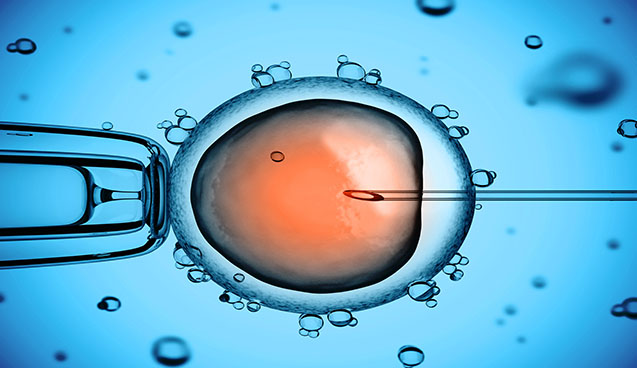PsiOxus Therapeutics Ltd. (PsiOxus), an oncolytic
immunoncology company, has announced that it will present data highlighting the
progress of its next generation “Antibody Armed EnAd” (AbEnAd) anti-cancer
therapeutic platform at the American Association for Cancer Research (AACR)
Annual Meeting 2015 in Philadelphia, PA April 19-22, 2015. AbEnAd is the antibody
armed series from the “Armed EnAd Platform” which is based upon the company’s
flagship therapeutic oncolytic virus, enadenotucirev (EnAd). EnAd was developed
using the principles of natural selection to specifically target and destroy cancer
cells, and to allow systemic intravenous delivery.
Brian Champion, Head of PsiOxus R&D, commented: “We have previously
demonstrated that EnAd can be delivered intravenously. The possibility to ‘arm’ the
EnAd particles with specific anti-cancer therapeutic agents, now enables the
production of high concentrations of immunotherapeutics, such as checkpoint
inhibitor antibodies, and other therapeutic agents selectively within the tumour
microenvironment where they are needed. The ability to use systemic
administration means that armed EnAd particles can reach and express their
therapeutic payloads in both the primary tumour as well as its metastases. The
ability to “arm” the virus with different therapeutic agents, now opens the path for
this exciting new technology to target a wide variety of cancers.”
Forcing Cancer Cells to Produce Anti-Tumour Drugs
In the AbEnAd platform, EnAd viral particles are ‘armed’ with the genetic
instructions required to produce a specific therapeutic anti-cancer antibody. Once
the AbEnAd particles infect a cancer cell, it directs the machinery of the host cell to
produce new copies of the virus as well as the specific anti-cancer antibody it is
carrying – and this antibody is then able to exert its action on surrounding cancer
cells or other local components of the tumour, such as cells of the immune system.
Because this process has an amplification effect, the AbEnAd viral particles can then
go on to infect neighbouring cells, releasing more of the anti-cancer antibody
“payload” in an expanding radius to impact surrounding tumour cells. The virus
infection also triggers the release of inflammatory mediators that serve to attract
and stimulate immune cells, such as cytotoxic T-cells that can induce tumour cell
death.. The antibody payloads encoded in the virus can thus be designed to facilitate
these anti-cancer effects.
The PsiOxus team is currently working with a class of therapeutic antibodies that
inhibit immune checkpoint pathways, which have been shown to be very effective
against a range of different cancer types in a number of previous external studies.
However, besides antibodies of different specificities in the AbEnAd series, the
“Armed EnAd Platform” can include a broad variety of agents for the “arming”, such
as inhibitory or stimulatory molecules that may be proteins/peptides or nucleotide
based such as RNAi. This allows targeting of otherwise “undrugable” pathways as
well as the use of agents that cannot feasibly be delivered systemically due to their
general side effects, e.g. immune-stimulatory molecules.
Professor Len Seymour, Professor of Gene Therapies, Department of Oncology,
University of Oxford, and member of the PsiOxus Scientific Advisory Board,
commented: ‘The “Armed EnAd Platform” development should be game-changing
for anti-cancer biologics. Not only can we target and destroy cancer cells specifically
using the EnAd virus, we now see it is possible to force the cancer cell to produce
and secrete anti-cancer biologics which can augment the local anticancer effect. This
targeted-expression approach maximises the level of the biologic at the tumour site
and simultaneously minimises unwanted systemic exposure, giving a far better
therapeutic index than could be previously achieved. What is most exciting from a
scientific standpoint, is the versatility of the “Armed EnAd Platform” in terms of the
variety of payloads that can be encoded. This platform provides a significant step
forward in the search for new ways to treat cancer, in particular for challenging
cancer subtypes that do not yield to conventional therapies.’
Learn more at AACR 2015
The most recent results from the ongoing AbEnAd research programme will be
presented as part of a poster session at the AACR meeting on Sunday 19 April 2015
from 13:00 to 17:00 (abstract number 295). For more information on AbEnAd and
the EnAd arming platform, please visit www.psioxus.com.
PsiOxus also recently announced the expansion of its first generation EnAd clinical
programme, following success with tumour-specific delivery through intravenous
administration. Full details can be found on the PsiOxus website.
About PsiOxus Therapeutics, Ltd.
PsiOxus Therapeutics is an Oxford, UK-based development stage biotechnology
company with a particular focus in immune therapeutics in oncology. PsiOxus has
developed a patented platform of tumour-targeted delivery based on its oncolytic
vaccine, enadenotucirev (EnAd). EnAd’s unique design allows it to be delivered
systemically via intravenous administration. The anti-cancer scope of EnAd can be
expanded through “arming” – a process that involves addition of new genes into
EnAd. The “Armed EnAd” platform makes possible creation of a broad range of
unique oncolytic immune therapeutics, including oncolytic vaccines that express
one or more antibodies (AbEnAd), cytokines or other immunomodulatory proteins,
or nucleotide based payloads such as RNAi. The Armed EnAd platform is in
preclinical stage, while phase I/II clinical trials are ongoing with the parent
unarmed EnAd in different tumor types.
